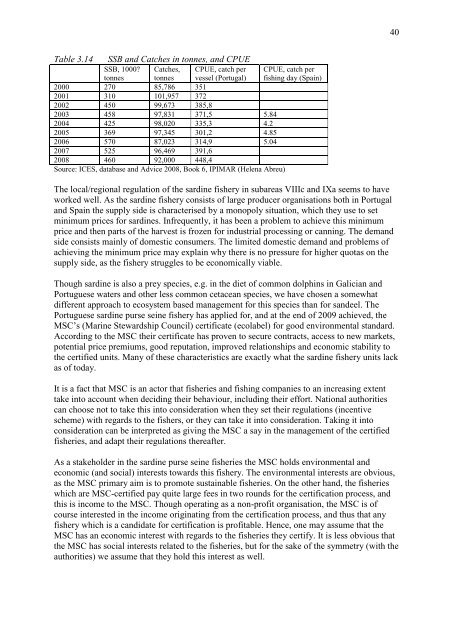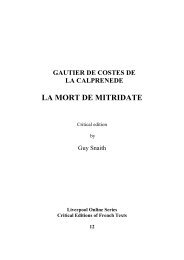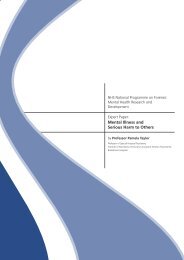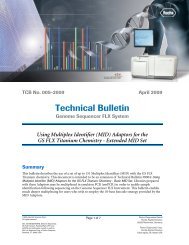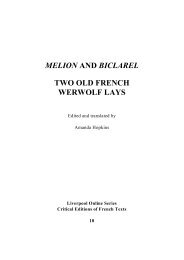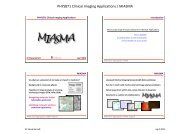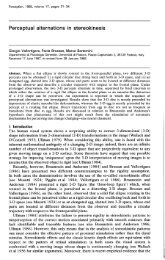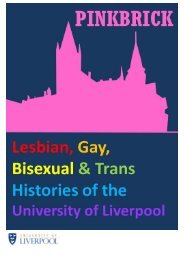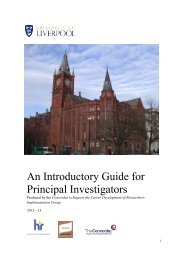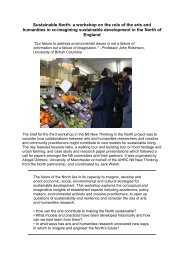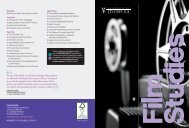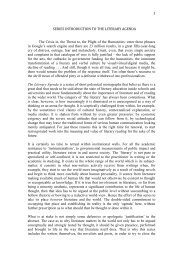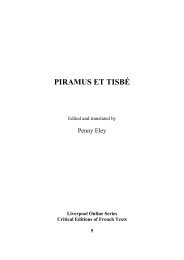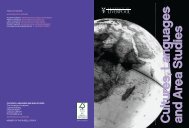Operational tools and adaptive management
Operational tools and adaptive management
Operational tools and adaptive management
You also want an ePaper? Increase the reach of your titles
YUMPU automatically turns print PDFs into web optimized ePapers that Google loves.
Table 3.14 SSB <strong>and</strong> Catches in tonnes, <strong>and</strong> CPUE<br />
SSB, 1000? Catches, CPUE, catch per CPUE, catch per<br />
tonnes tonnes vessel (Portugal) fishing day (Spain)<br />
2000 270 85,786 351<br />
2001 310 101,957 372<br />
2002 450 99,673 385,8<br />
2003 458 97,831 371,5 5.84<br />
2004 425 98,020 335,3 4.2<br />
2005 369 97,345 301,2 4.85<br />
2006 570 87,023 314,9 5.04<br />
2007 525 96,469 391,6<br />
2008 460 92,000 448,4<br />
Source: ICES, database <strong>and</strong> Advice 2008, Book 6, IPIMAR (Helena Abreu)<br />
The local/regional regulation of the sardine fishery in subareas VIIIc <strong>and</strong> IXa seems to have<br />
worked well. As the sardine fishery consists of large producer organisations both in Portugal<br />
<strong>and</strong> Spain the supply side is characterised by a monopoly situation, which they use to set<br />
minimum prices for sardines. Infrequently, it has been a problem to achieve this minimum<br />
price <strong>and</strong> then parts of the harvest is frozen for industrial processing or canning. The dem<strong>and</strong><br />
side consists mainly of domestic consumers. The limited domestic dem<strong>and</strong> <strong>and</strong> problems of<br />
achieving the minimum price may explain why there is no pressure for higher quotas on the<br />
supply side, as the fishery struggles to be economically viable.<br />
Though sardine is also a prey species, e.g. in the diet of common dolphins in Galician <strong>and</strong><br />
Portuguese waters <strong>and</strong> other less common cetacean species, we have chosen a somewhat<br />
different approach to ecosystem based <strong>management</strong> for this species than for s<strong>and</strong>eel. The<br />
Portuguese sardine purse seine fishery has applied for, <strong>and</strong> at the end of 2009 achieved, the<br />
MSC‟s (Marine Stewardship Council) certificate (ecolabel) for good environmental st<strong>and</strong>ard.<br />
According to the MSC their certificate has proven to secure contracts, access to new markets,<br />
potential price premiums, good reputation, improved relationships <strong>and</strong> economic stability to<br />
the certified units. Many of these characteristics are exactly what the sardine fishery units lack<br />
as of today.<br />
It is a fact that MSC is an actor that fisheries <strong>and</strong> fishing companies to an increasing extent<br />
take into account when deciding their behaviour, including their effort. National authorities<br />
can choose not to take this into consideration when they set their regulations (incentive<br />
scheme) with regards to the fishers, or they can take it into consideration. Taking it into<br />
consideration can be interpreted as giving the MSC a say in the <strong>management</strong> of the certified<br />
fisheries, <strong>and</strong> adapt their regulations thereafter.<br />
As a stakeholder in the sardine purse seine fisheries the MSC holds environmental <strong>and</strong><br />
economic (<strong>and</strong> social) interests towards this fishery. The environmental interests are obvious,<br />
as the MSC primary aim is to promote sustainable fisheries. On the other h<strong>and</strong>, the fisheries<br />
which are MSC-certified pay quite large fees in two rounds for the certification process, <strong>and</strong><br />
this is income to the MSC. Though operating as a non-profit organisation, the MSC is of<br />
course interested in the income originating from the certification process, <strong>and</strong> thus that any<br />
fishery which is a c<strong>and</strong>idate for certification is profitable. Hence, one may assume that the<br />
MSC has an economic interest with regards to the fisheries they certify. It is less obvious that<br />
the MSC has social interests related to the fisheries, but for the sake of the symmetry (with the<br />
authorities) we assume that they hold this interest as well.<br />
40


